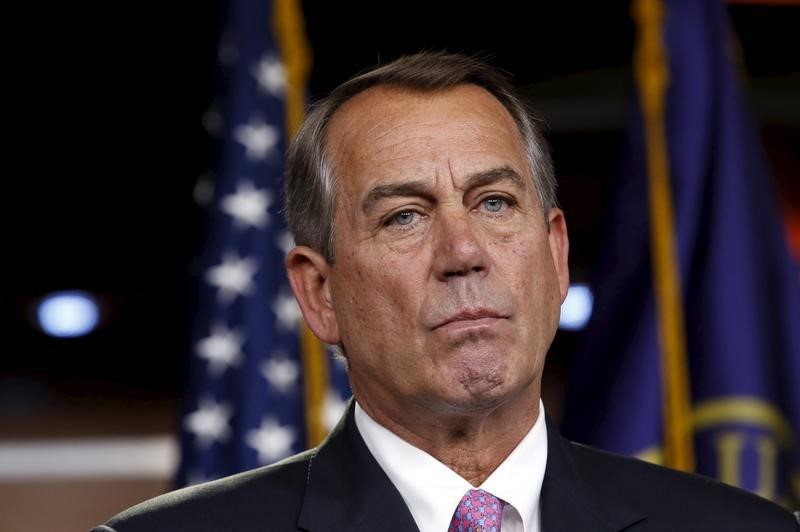By Susan Cornwell
WASHINGTON (Reuters) - Republicans will keep attacking Obamacare in the U.S. Congress and on the presidential election campaign trail to energize right-wing voters and raise money, but analysts said there was little chance of the healthcare law being rolled back before 2017 now that the Supreme Court has again validated it.
On Thursday, the high court upheld a central part of the Affordable Care Act, as it is formally known. It was the second time the court confirmed the legality of President Barack Obama's biggest domestic achievement.
That greatly reduces the chances of any substantive legislative or legal challenge to the law by Republicans until a new president takes office in January 2017 after Democrat Obama leaves office.
By then, the law will have been on the books for seven years and millions of Americans will have a stake in it, making it even more difficult to dismantle.
"It is entrenched. There certainly will be no legislation (signed into law) that will change anything for the next year and a half," said Joseph Antos, an expert in health policy at the American Enterprise Institute, a conservative think tank.
"This administration is done with health policy. Everybody's done," Antos said.
Obamacare survived a major legal test when the Supreme Court upheld tax subsidies at the heart of the law that help millions of Americans afford premiums they pay for health insurance.
Enacted in 2010, the law was meant to provide health insurance coverage for millions of Americans who neither had insurance through an employer nor could afford an individual plan. Republicans opposed the law from the start, calling it unnecessary government interference and "socialized medicine."
More than 10 million people now have insurance purchased through state and federal marketplaces set up under the law. About 8.7 million of them get subsidies, the government says.
REPUBLICAN DISAPPOINTMENT, DEMOCRATIC VICTORY
Following Thursday's 6-3 court ruling, Republicans quickly vowed to make the 2016 election campaign a referendum on Obamacare, expressing disappointment with the court's decision.
Democrats cheered it, however. On the presidential campaign trail, Democratic Party front runner Hillary Clinton expressed delight via Twitter (NYSE:TWTR). "Yes! SCOTUS affirms what we know is true in our hearts & under the law: Health insurance should be affordable & available to all," she said.
Republican House Speaker John Boehner said, "We will continue our efforts to repeal the law and replace it."
But it was unclear what Republicans could do to make good on that pledge. Republican lawmakers had worked on action plans for a high court ruling against the subsidies, but there seemed to be no clear Republican strategy for the ruling that was handed down, a resounding victory for Obama.
The Republican party is divided, said Robert Blendon, a health policy and politics analyst at Harvard University.
One wing "wants to go back to 2009" before Obamacare existed. Others have proposed alternatives. Senate Finance Committee Chairman Orrin Hatch, for instance, is urging the approval of tax credits to help people buy insurance.
Some Republicans "feel they dodged a bullet" with the court's decision, which means they won't have to anger their base by preserving the subsidies, even temporarily, said John Ullyot, a Republican strategist and former longtime Senate aide.
Most of the dozen or so Republican candidates running for their party's nomination vowed to repeal Obamacare if elected.
Former Florida Governor Jeb Bush's campaign issued a fundraising appeal for "emergency" contributions to ensure the law is rolled back. "I will work with Congress to repeal and replace this flawed law," Bush said in a statement.
Senator Marco Rubio, another Republican contender, said: "I remain committed to repealing this bad law."
Brookings Institution analyst Stuart Butler said the law may be modified, but it is now hard to imagine it being totally repealed, even after a new president takes office in 2017.

"The longer it is on the books the harder it will be to dislodge," he said. "Not harder - impossible."